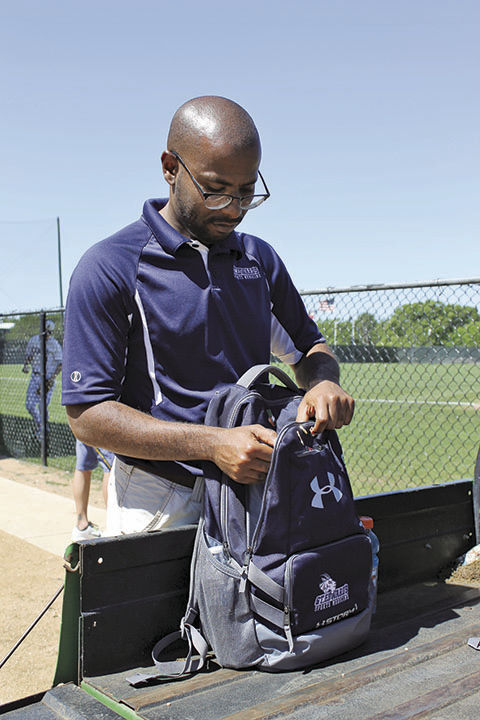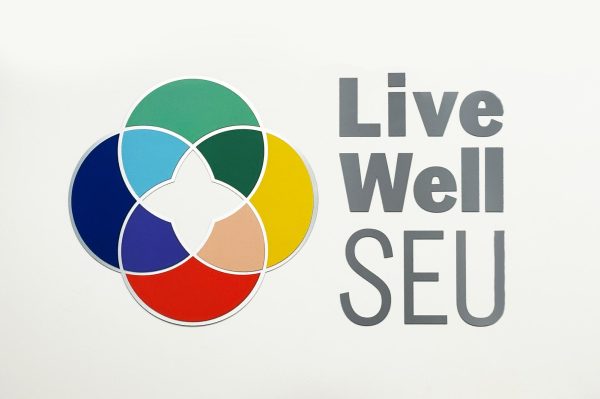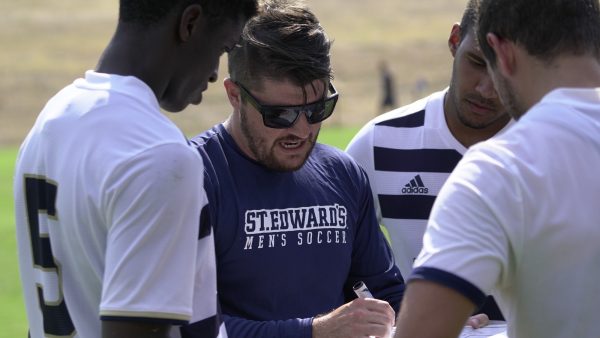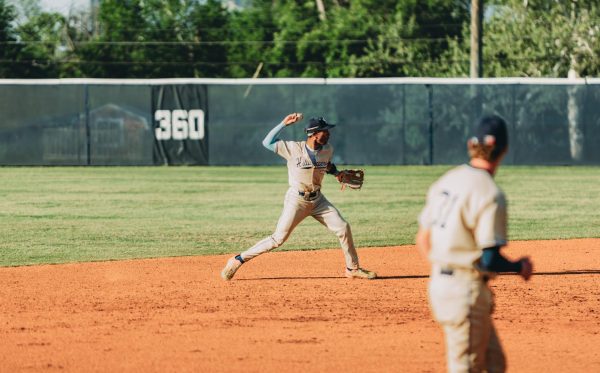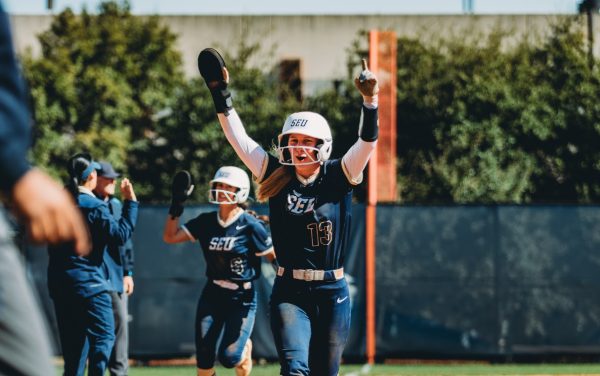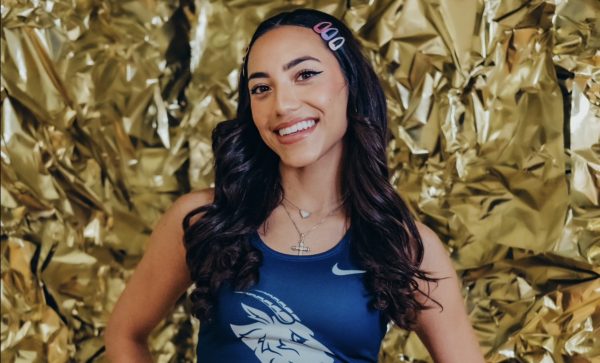Athletic trainers motivate athletes behind the scenes
As senior athletic training student Fawaz Alfageeh tightly applies tape around the ankle of a student athlete before a big game, he tries to be precise, yet quick. While he focuses on his timing, the many athletes he interacts with ask him questions about his life back home.
“I didn’t grow up playing video games,” Alfageeh said.
Instead he would scuba dive off the beaches of Saudi Arabia. As he got older, he also coached soccer and volunteered at the orphanage. He grew up playing rugby, soccer and track.
In 2014, he competed in two rugby tournaments with the Saudi Arabian national team in South Korea and Dubai, while concurrently studying 8,000 miles away at St. Edward’s University.
“Rugby was the main help for me to speak English,” Alfageeh said, as his native language was Arabic. “Most of my teammates were from England or South Africa. The only communication we had was English.”
Watching classic American movies like “Karate Kid” and comedies like “The Waterboy” also helped him learn English.
In Saudi Arabia, Alfageeh earned a degree in electronics, then came to the United States in 2011 for an eight-month English program in Ohio around the age of 25. In 2012, he moved to Austin and played recreational soccer with the ATX Galaxia S.C.
When he began attending St. Edward’s in 2013, Alfageeh tried to find a major that was best for his passion of sports. His academic advisor pointed him towards the kinesiology major with an emphasis on athletic training.
“Fawaz is great,” Assistant Athletic Trainer Annie Nalepa said. “His maturity level is probably the biggest thing that sets him apart from everyone else. He has some life experience and is very good at assessing a situation and not necessarily reacting impulsively.”
Full-time certified athletic trainers are responsible for assessing injuries and determining the proper course of action, while student athletic trainers observe situations and help with the day-to-day maintenance. Often the unsung heroes, everyone — from first-year observation students to head athletic trainers — help with loading coolers and cleaning equipment after sporting events.
“They’re always around, trying to keep the mood light,” junior baseball player Blake Alexander said of the athletic trainers. “So if you’re hurt, they’re always trying to uplift you and do whatever they can to make you smile.”
Athletic training students acquire 1,800 hours of observation and hands-on experience over five semesters, which can be broken down to about 20 hours a week. Required course classes include basic anatomy, evaluating injuries with upper and lower extremities, taping and bracing, as well as emergency management.
Once they start observing with SEU Athletics, student athletic trainers are on semester rotations with various sports to gain experience with multiple athletes. Alfageeh has worked with women’s soccer then men’s basketball, where ankle and knee injuries are common. This semester, he is working with the baseball team where he deals with more shoulder, elbow and core injuries.
When curious student athletes ask him about his native culture and cuisine, he invites them to visit him, adding that they will always have a home in Saudi Arabia. Upon graduating in May, Alfageeh plans to further his sports medicine studies, and hopes to become the first Saudi athletic trainer on the national soccer team.
“Something I will remember is the love and respect I got from all the teams I worked with,” Alfageeh said. “It was great to see how easy they accepted me for who I am. As [an] international student being involved with American people, it was a big help.”


